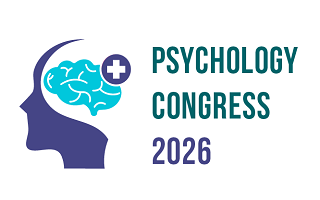3rd International Congress on
Psychology & Behavioral Sciences
March 26-27, 2026 | Osaka, Japan

Address: 1 Chome-9-15 Shinkitano, Yodogawa Ward, Osaka, 532-0025, Japan.
Psychology Congress 2026

Beijing Institute of Technology School of Education, China
Title : Reflecting Emotional Intelligence: How mindsets Navigate Academic Behaviors Among College Students
Abstract:
Substantial evidence supports the multifaceted positive effects of emotional intelligence. According to implicit theory, beliefs about the malleability of emotional intelligence (i.e., EI mindsets) may serve as a more predictive variable than emotional intelligence itself in fully realizing its beneficial impacts. However, the impact and underlying mechanisms of EI mindsets (growth vs. fixed) on students’ academic behaviors remain poorly understood, our research aims to fill this gap. By integrating implicit theory with regulatory focus theory, we conducted three studies with Chinese college students to explore how EI mindsets influence academic behaviors (academic engagement and burnout). Study 1 examined the conceptual network of EI mindsets and their unique predictive power for academic engagement and burnout. Study 2 experimentally validated the causal relationships between EI mindsets and academic engagement and burnout. Based on a three-wave longitudinal survey, Study 3 revealed that growth EI mindsets enhance academic engagement through promotion focus, while fixed EI mindsets exacerbate academic burnout via prevention focus. These findings indicate that EI mindsets constitute a distinct and significant variable influencing students' academic engagement and burnout, with theoretical, practical, and future research implications.
Biography:
Substantial evidence supports the multifaceted positive effects of emotional intelligence. According to implicit theory, beliefs about the malleability of emotional intelligence (i.e., EI mindsets) may serve as a more predictive variable than emotional intelligence itself in fully realizing its beneficial impacts. However, the impact and underlying mechanisms of EI mindsets (growth vs. fixed) on students’ academic behaviors remain poorly understood, our research aims to fill this gap. By integrating implicit theory with regulatory focus theory, we conducted three studies with Chinese college students to explore how EI mindsets influence academic behaviors (academic engagement and burnout). Study 1 examined the conceptual network of EI mindsets and their unique predictive power for academic engagement and burnout. Study 2 experimentally validated the causal relationships between EI mindsets and academic engagement and burnout. Based on a three-wave longitudinal survey, Study 3 revealed that growth EI mindsets enhance academic engagement through promotion focus, while fixed EI mindsets exacerbate academic burnout via prevention focus. These findings indicate that EI mindsets constitute a distinct and significant variable influencing students' academic engagement and burnout, with theoretical, practical, and future research implications.
